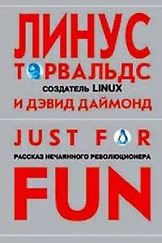If two people are maintaining similar kinds of software drivers, for example, I'll sometimes accept the work from both of them and see which one ends up getting used. Users tend to lean on one versus the other. Or, if you let both maintainers work it out, they may end up evolving in different directions and their contributions end up having very distinct uses.
What astonishes so many people is that the open source model actually works.
I guess it helps to understand the mentality of hackers in the free software universe. (By the way, I usually try to avoid the term "hacker." In personal conversations with technical people, I would probably call myself a hacker. But lately the term has come to mean something else: underage kids who have nothing better to do than sit around electronically breaking into corporate data centers, when they should be out volunteering at their local libraries or, at the very least, getting themselves laid.)
The hackers -- programmers -- working on Linux and other open source projects forego sleep, Stairmaster workouts, their kids' Little League games, and yes, occasionally, sex, because they love programming. And they love being part of a global collaborative effort -- Linux is the world's largest collaborative project -- dedicated to building the best and most beautiful technology that is available to anyone who wants it. It's that simple. And it's fun.
Okay, I'm starting to sound like a press release with all this shameless self-promotion. Open source hackers aren't the high-tech counterparts of Mother Teresa. They do get their names associated with their contributions in the form of the "credit list" or "history file" that is attached to each project. The most prolific contributors attract the attention of employers who troll the code, hoping to spot, and hire, top programmers. Hackers are also motivated, in large part, by the esteem they can gain in the eyes of their peers by making solid contributions. It's a significant motivating factor. Everybody wants to impress their peers, improve their reputation, elevate their social status. Open source development gives programmers the chance.
Needless to say, I was spending most of the year 1993 like I had spent most of 1992, 1991, et cetera: hunched over a computer. That was about to change.
Following in the academic footsteps of my grandfather, I was a teaching assistant at the University of Helsinki, assigned to the fall semester of the Swedish-language "Introduction to Computer Sciences"course. That's how I met Tove. She had more of an impact on my life than even Andrew Tanenbaum's book, Operating Systems: Design and Implementation . But I won't bore you with too many details.
Tove was one of fifteen students in my course. She had already received a degree in preschool education. She wanted to study computers, too, but wasn't progressing as quickly as the rest of the class. She eventually caught up.
The course was so basic-this was the fall of 1993, before the popularity of the Internet-my homework assignment for the class one day was to send me email. It sounds absurd today, but I said: "For homework, send me email."
Other students' emails contained simple test messages, or unmemorable notes about the class.
Tove asked me out for a date.
I married the first woman to approach me electronically.
Our first date never ended. Tove was a preschool teacher and six-time Finnish karate champion who had emerged from a functional family, although that's how I'd describe any family that was not as quirky as mine. She had a lot of friends. She felt like the right woman for me from the very first moment we got together. (I'll spare you the elaboration.) Within a few months Randi the cat and I had moved into her minuscule apartment.
For the first two weeks, I didn't even bother bringing over my computer. Not counting my army service, those two weeks were the longest span of time that I had been away from a computer since I had been eleven year sold and sitting on my grandfather's lap. Not to dwell on this, but it still holds the record for being my biggest stretch -- as a civilian -- without a CPU. Somehow. I managed (again, the details aren't interesting). My mother, the few times I saw her then, would mutter something about "a triumph of Mother Nature." I think my sister and father were just stunned.
Soon, Tove went out and got a cat to keep Randi company. Then we settled into a nice pattern of spending evenings alone or with friends, waking up at 5 A.M. so she could get to her job and I could go to the university early, before anyone would be there to disturb me, and read my Linux email.
The birth of version 1.0 meant something new for Linux: the need for public relations. I would have been just as happy to introduce the new version to the world pretty much the way I had introduced previous versions. I would write something on the newsgroup like "Version 1.0 is out. Deal with it." (Okay, not in those exact words.)
A lot of other people thought it was much more of a big deal. They wanted version 1.0 for marketing purposes. There were all these budding commercial companies that had started to sell Linux. To them, version 1.0 was important for psychological, not technical, reasons. I couldn't disagree. The fact is, it looks bad when you try and sell version 0.96 of an operating system.
I wanted it out because it was a milestone for me, and because it meant I could stop fixing bugs for awhile and go back to development. The companies and the Linux community wanted to foist it onto the public in a major way.
We needed a public relations strategy. I wasn't going to personally champion the effort. I wasn't interested in putting out press releases or making statements. Others thought it should be done that way, so others volunteered to pick up the torch. This was pretty much how Linux itself was done -- and somehow, it all actually worked.
Lars was one of the driving forces behind making that first official release a real event. He and a few others thought the university would be the most appropriate place to make the announcement, It made sense. My bedroom was too small. And it would have set a wrong precedent to host the announcement at a commercial site. So Lars volunteered to coordinate the event with the university. The computer sciences department at the University of Helsinki was small enough that he could just talk to the head of the department.
The University of Helsinki was more than happy to offer up the main auditorium of the computer sciences department for the introduction of Linux Version 1.0. And why not? How often does a university have anything worthy of television news?
I did agree to give a talk. But it bore none of the horror of my Ede experience. Okay, some things were harder, now that I think about it.
Like having my dad in the audience. And the fact that it was on Finnish TV. It was the first time I ever got the chance to see myself on television. Both of my parents were in the audience (but I'm fairly certain they weren't sitting together). Tove was there, too. It was the first time my dad met Tove, so for me it was more than just the announcement of Version 1.0. Since I was involved in the last-minute speech preparations, like making sure my slides were okay, I wasn't there when they actually met. That apparently happened when they were walking into the auditorium. Maybe I caught it out of the corner of my eye.
In that talk, and in virtually every other one over the next several years,I spoke not so much about the technology but about Open Source.It was nice. It changed some opinions about Linux inside the computer science department. Before that, Linux was something the computer science department was proud of, and mildly encouraged. But after the announcement, people within the department started taking Linux more seriously. After all, they had seen it on the news.
Читать дальше












